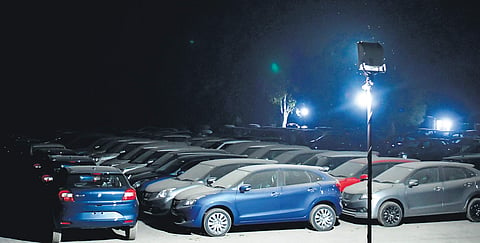

The country’s largest carmaker Maruti Suzuki India (MSIL) on Thursday forecast that weak demand would continue during the new fiscal year (2019-20), even as it reported a 4.6 per cent decline in net profit for the last quarter of the previous fiscal.
While the last fiscal was a “difficult” one for the automaker, according to chairman R C Bhargava, financial year 2019-20 is expected to be a weak one too. “The market will continue to be weak due to factors including the uncertainty over fuel prices and the implementation of BS VI emission norms from next year,” he said.
According to Bhargava, MSIL’s production and sales are expected to grow between 4 to 8 per cent for FY20. Maruti also expects rural markets to perform batter in terms of sales growth compared with the urban centres.
The single-digit growth forecast comes in the wake of the company posting rather poor figures in FY19, with net profit for the entire fiscal falling 2.9 per cent and net sales revenue rising by just 6.3 per cent. The company had stated last year that it would aim for a sales growth of 10 per cent, but sluggish domestic demand saw it undershooting that target.
For the quarter ended March 2019, the company reported a 4.6 per cent decline in net profit to Rs 1,795.6 crore, impacted by adverse foreign exchange rates, high commodity prices and increased promotion expenses. It had posted a net profit of Rs 1,882.1 crore in the same period of the previous year.
The Indian automobile market has been buffeted by several headwinds over the last year, including a finance crunch arising from the NBFC crisis in November, and high fuel prices during the first few months of the year.
Maruti Suzuki’s margins also took a hit due to currency fluctuations and commodity prices. “The rupee has not been a particularly robust currency and dollar and the yen and the euro... they all went up ... along with that commodity prices also went up. We also had some extra depreciation because second line in Suzuki plant was commissioned in January,” Bhargava told reporters.
These factors, combined with the downturn in the market affected most automobile companies who were forced to offer discounts. This impacted profitability, Bhargava said. “So while the sales revenue did go up by 6 per cent, expenses went up more thus impacting the profit,” he added.
As for planned capital expenditure, MSIL has earmarked Rs 4,500 crore this fiscal for new product development, R&D and land acquisition in order to expand its sales network. In 2018-19, the automaker had set aside Rs 4,000 crore as capex.
According to chief financial officer Ajay Seth, the earmarked Rs 4,500 crore of capital expenditure for the current fiscal will go into various initiatives including new product development, research and development and land acquisition. MSIL currently has over Rs 34,000 crore as cash balance and has recommended a dividend of Rs 80 per share for FY19.